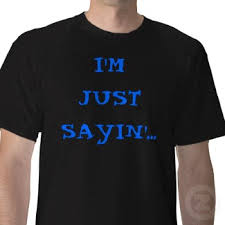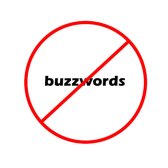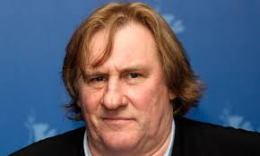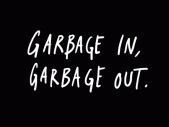When did porn earn a halo?
1. Travel porn:
Recently I saw a delightful, if unconventional, film called The Trip to Italy, which consisted of two middle-aged comedians travelling around the gorgeous Italian countryside, enjoying sumptuous meals in spectacular settings while ogling waitresses and competing for who could do the best Michael Caine and Sean Connery impersonations. The Australian newspaper described the film as ‘travel porn’. Really? I saw nothing even slightly pornographic. The naughty little word has certainly undergone a metamorphosis.
2. Actual porn:
‘Pornography’ comes from two Greek words πορνεία (porneia), meaning ‘prostitution,’ and γράφειν (graphein), meaning to write or record. It arrived, via French, in the mid-nineteenth century, so it’s hardly a new word for the English language. Its shortened form ‘porn’ (known colloquially in Australia as ‘porno’) is much newer. Traditional dictionaries like Oxford, Webster and Macquarie confirm that the word ‘porn’ is merely an abbreviation of the more formal word. None of them disputes what ‘pornography’ means. So it looks as though they’ve been outpaced by social media, once again.
3. Food porn:
No, this isn’t rude food; rather it is dishes presented as the glorification of culinary art. Just how is this supposed to be pornographic? At a stretch of the imagination, it might be described as ‘food porn’ if prepared and presented by an attractive chef like Nigella Lawson, who lovingly lingers over the ingredients and makes billing and cooing noises as she cooks. But this is hardly porn; at most, it’s culinary voyeurism. Perhaps the consumption of certain high-calorie foods is considered by some people to be a sex substitute, or else there’s a trace element of guilt associated with the sin of enjoying oneself too much.
4. Science porn:
This is a genuine term in current usage, with not a single negative connotation. ‘Science porn’ is not a guilty pleasure. It’s not even ersatz sexiness. This term is applied to adoration of scientific phenomena and to the study of science. It is unapologetically nerd pride. ‘Science porn’ could even be described as ‘science love’. So why the ‘porn’ tag? Purely for excess ardour. So the term really has crossed over from Playboy and the porn-lite of music videos, into the realm of the love of knowledge: from éros to agápe.
5. Earth porn:
Linguistically and thematically somewhere between ‘travel porn’ and ‘science porn,’ this is a photographic category consisting of magnificent images of natural and architectural phenomena from around the world, often in remote places.
6. Political porn:
Now we’re in the realm of fandom: heroes, villains and comic-book dichotomies of conflict. ‘Political porn’ is the not-so-secret guilty pleasure of people formerly known as ‘political junkies,’ whose addiction is fed by the endless drama, sexy scandals and electoral excess of American, British, Australian, European and every other kind of tabloid and broadsheet political intrigue. There are whole websites devoted to ‘political porn’. Just don’t look it up on Google images, or the old-fashioned kind of pornography will flood your screen and leave you with pictures you might want to forget.
7. Pessimism porn:
This too is a real phenomenon, favoured by doomsayers such as the Rapture enthusiasts and Terminator-style survivalist advocates. ‘Pessimism porn’ isn’t a term used by such groups but it nevertheless describes fantasy-fulfilment nightmares of civil and economic collapse.
8. Poverty porn:
This phenomenon describes a form of exploitation by sensationalist print or electronic media, purveying exaggerated tales of misery and homelessness in order to sell more papers or sell more advertising time during such the broadcast of such melodramatic stories. The description has even been thrown at some charities accused of exaggerating poverty conditions for fundraising purposes.
9. Porn porn:
Whether porn wears a halo or masquerades as a harmless guilty pleasure, mainstream dictionaries still haven’t caught up, so that gives the term a certain click-bait cachet. Like a couple of curse words still considered taboo in the conversational mainstream, ‘porn’ will still be a little devil for some time yet.
What exactly are you ‘Just Saying’?
This one bugs me.
I like to embrace new words and phrases. Neologisms can be clever, witty and fresh. We coin them or we share them because they fill a need. We didn’t have a term for fear of homosexuality before ‘homophobe’ came along. Sure, it’s not perfect (because the derivation of ‘homo’ means same rather than different) but it works because it fills a language and societal need.
We didn’t have any of the following words before they were coined. Sure, they met some resistance but what new usage doesn’t? Apolitical (1952), Decaffeinate (1934), Microwave (1931), Mini-series (1972), Multi-storey (1918), Non-event (1962), Privatisation (1959), Cold War (1945), Radioactivity (1896), Allergy (1907), Road rage (1995) and Television (1926).
Slang has its place too. The following slang words—all abbreviations—were considered vulgar when they first appeared: crunch, fridge, factory, phone, flu, pub, bus, cab, TV, cello, mob, bra, cinema, dynamo, pants, pram, quote, taxi, typo and zoo. But they’re perfectly acceptable now. They filled a need and they continue to work because they mean something.
What I dislike is a vogue phrase that doesn’t mean anything—or worse, if it’s a sneaky way to disguise meaning.
Who exactly benefits when someone utters the phrase ‘I’m just saying’? Who is better off? And what is that speaker ‘just’ saying? Is it meant to be a disclaimer, an exemption clause, a verbal escape hatch, or all three?
Here’s my theory: ‘just saying’ is avoidance of responsibility. It’s rabble-rousing. It’s passive-aggressive. When someone is ‘just’ saying, he or she hopes they won’t be held accountable for what they’ve said. Oh, I was just saying. What crap. You either state an opinion or you don’t. There’s no half-statement. It’s as weak as uttering the phrase ‘no offence,’ after giving offence.
If a thing is worth saying, why not say it? If not, then shut up. ‘Just saying’ is like making an accusation and then trying to retract it, while at the same time wanting the statement to stand. This is wanting to eat your cake and still have it.
It’s a coward’s phrase. Just sayin’.
Putting the Buzz Back into Fuzziness
This month Huffington Post published a list of words so overused they have all but lost their meaning. HuffPosts’s culprits include ‘totally,’ ‘awesome,’ ‘hopefully,’ ‘literally’ and ‘basically’. This is hardly groundbreaking news. We could all add a few. My list would be much longer, and include such post-meaning words as ‘frankly,’ ‘situation,’ ‘utilise,’ ‘interestingly,’ ‘very,’ ‘thankfully,’ ‘quite,’ ‘indeed,’ ‘honestly,’ ‘truly,’ ‘agenda’ and ‘outcome.’
Hardly even buzzwords, such weaklings as those listed above aren’t irritating enough to bother most of us. ‘Interestingly’ and ‘indeed’ are yesterday’s heroes of trendiness, long past their use-by. ‘Passionate’ is a contemporary buzzword. So are business monstrosities such as ‘committed,’ ‘synergy’ and ‘empower’. ‘Proactive’ and ‘paradigm’ can still buzz; while poor old ‘actually’ scarcely registers a pulse. And who gives a tinker’s cuss about little ‘very’? Also, when did you last see a tinker? Or hear a cuss?
I propose to breathe some life into these stale loaves. I’m going to pop them in the microwave of invention and stimulate their meaning molecules just enough to make them edible. They won’t snap as of old but they might at least crackle and pop.
Frankly: adv. pertaining to anyone called Frank, behaving as Frank would behave; of Frankish or French origin, suspected of Frankish sympathies, suspected of understanding more than a few words of high school French, shrugging or gesturing in a Gallic manner, resembling Gerard Depardieu; adj. (male) short and swarthy, (female) impossibly beautiful and aloof, arrogant to a disproportionate degree regarding all aspects of French culture, pretentious, able to mime, able to wear a beret at a rakish angle, dandified, moustached, fond of using words like ‘sommelier’ and ‘ambience,’ preferring films in black and white with subtitles and starring either Gerard Depardieu or Audrey Tautou.
Situation: n. In a seated position to receive bad news, in a state of delivering bad news to someone else, in a condition of being ready to hear the worst but ensuring that all parties are seated before hearing it; place where the chairs are kept for this transaction, receptacle such as house or block of land where seating equipment is stored for the delivery or receipt of bad news; disaster; unimaginable disaster; disaster so bad it can only be couched in NASA-style euphemisms like ‘we have a major malfunction’ and ‘negative life event’.
Utilise: v. tr. Only to be deployed by terribly important people much too busy and important to make do with ordinary little words like ‘use’. Suitable only for people with impressive job titles like Executive Sales Manager, rather than mere sales managers without capitals.
Interestingly: adv. Without any interest; describing the act of trying to interest someone—anyone—in a dull topic; suggesting that all previous statements lacked interest but this one is worth sitting up straight for and paying attention to; this might be the only bit worth opening your eyes for, and then you can nod off again.
Outcome: n. Sludge of a verbal nature that comes out of business or government managers’ mouths; drivel in the form of reports that justifies their existence; the product of garbage in; the means to achieving an employee’s income.
Please add your own bêtes noire to be first up against the wall when the language revolution comes (including all foreign phrases in italics). I’m sure you’ve got a little list, and they’d none of them be missed.






